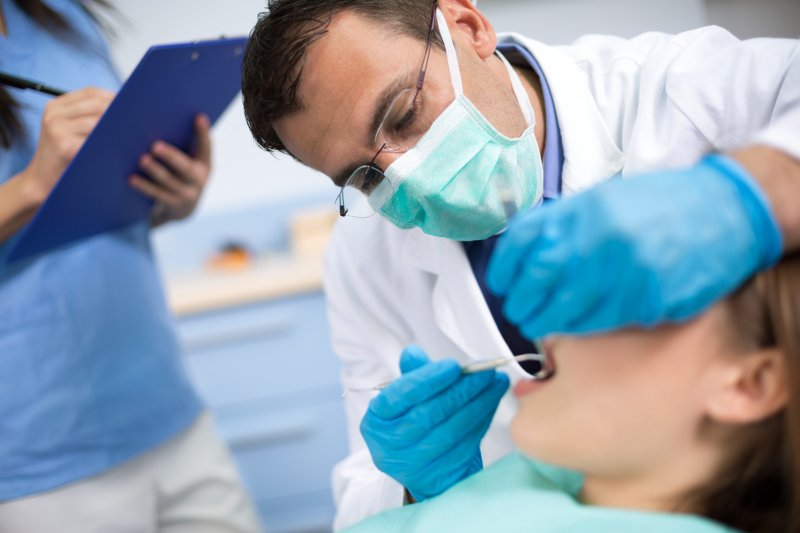
Sleep apnea often goes undiagnosed in America, largely because most individuals don’t even know they have it. As a result, their sleep suffers and their ability to concentrate or stay productive throughout the day diminishes. If you’ve recently been diagnosed with sleep apnea but haven’t considered sleep apnea treatment in Ponte Vedra Beach, you’ll want to keep reading.
According to medical experts, those with sleep apnea are at significantly higher risk for developing systemic problems later. Learn the causes and how you can get yourself treated!
How Sleep Apnea Prevents Proper Sleep
While there are multiple forms of sleep apnea, obstructive sleep apnea (OSA) is considered to be the most common. In this instance, sleep apnea develops as a result of an obstruction inside the mouth, typically by the tongue, tonsils or soft and hard palates. This obstruction combined with other potential risk factors (i.e. deviated septum, obesity, alcohol and drug use right before bed, and being over a certain age) can create a positive environment for the development of sleep apnea.
In short, these obstructions don’t necessarily prevent all sleep, but they do affect the most important stages responsible for regeneration and memory. These include the atonic stages (N3 and N4), also known as deep sleep. As you enter deep sleep, soft and hard tissue becomes more difficult for the body to control on its own, resulting in interruptions as the airway becomes blocked. To prevent suffocation, the body triggers an emergency response that forces us awake.
The Effects on Your Overall Health
While it’s clear that getting insufficient sleep can reduce your productivity, concentration, and mood stability, these effects are really only apparent in the short-term. In reality, the long-term effects have the potential to be the most damaging.
For example, untreated sleep apnea can also result in:
- Daytime fatigue
- Higher risk of getting sick
- High blood pressure
- Heart disease and heart attack
- Stroke
- Type 2 diabetes
- Higher risk of driving and work-related accidents
- Metabolic syndrome
- Liver problems
How a Dentist Can Help You
Many people don’t realize how equipped dentists truly are at catching and treating the symptoms of sleep apnea. Dentists already use oral symptoms to catch signs of underlying disease unrelated to sleep apnea, which is why routine exams are so important to both your oral and your overall health.
To catch the signs of sleep apnea, dentists can observe aspects of your medical history and comorbidities typically associated with sleep apnea (i.e. ADHD, acid reflux, heart disease, stroke, etc.) and determine your predisposition to the condition. Additionally, forward head posture, mouth breathing, asymmetric nostrils, dark discolorations around the eyes, and chronic jaw pain or soreness also classify as indicators.
To treat sleep apnea, dentists typically resort to an oral appliance that’s custom-made to fit your mouth exactly. This device is designed to shift the position of your jaw, creating a larger airway inside your mouth. As a result, breathing is easier and the obstruction is effectively removed.
Do you struggle to sleep well at night or simply don’t know where to turn with your recent diagnosis? A visit to a dentist in Ponte Vedra Beach could prove to be extremely helpful!
About the Author
Dr. Eric L. Townsend offers both the continuous positive airway pressure (CPAP) machine and highly advanced oral appliances designed to treat patients with varying degrees of sleep apnea. To learn more about his practice or expertise in diagnosing and treating this chronic condition, feel free to contact him through his website.



